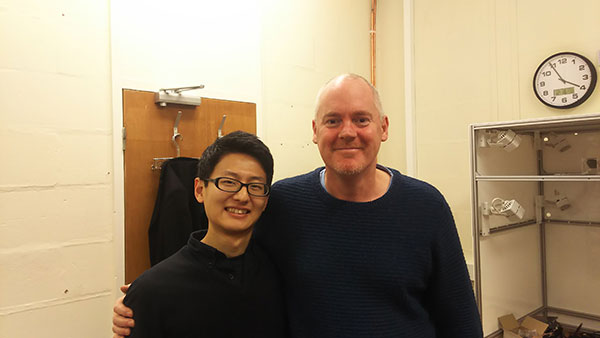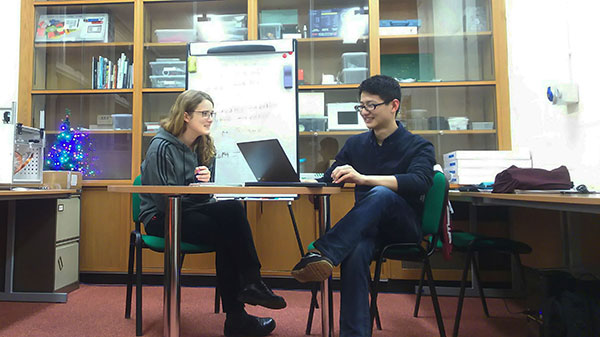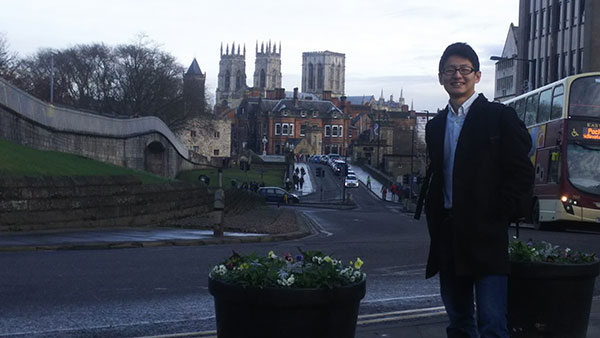Content of the study program
I conducted research on self-folding technologies with Dr. Shuhei Miyashita, an expert in micro-robotics at the Department of Electronics, University of York. Recently, self-folding technologies, which automatically enable three-dimensional structures from planar structures, have been actively investigated as applications to micro-sized robots and medical devices. Self-folding technologies enable extremely small, micro-scale structures to be easily constructed. Because three-dimensional structures constructed from two-dimensional structures are difficult to fold back into two-dimensions using conventional technologies, my research aimed to realize self-folding technologies using a thermal-responsive hydrogel that can change its shape depending on the temperature.

Study results
I struggled at the beginning due to the language barrier. There were many opportunities for discussions at the university. After the discussion was over, I was still thinking over responses in English, making it difficult to be an active participant. However, I was beginning to participate in real-time toward the end. In terms of research, I was able to show results just two days before the program ended. There were additional opportunities to participate in discussions through Skype-mediated journal clubs jointly hosted with other research groups two to three times a week. By reading articles, writing abstracts, conversing with others, and engaging in discussions, I was able to hone my reading, writing, listening, and speaking skills.

My experience abroad
I visited York, which is in the middle of England, where I was exposed to a variety of accents from the north and south in this central region. In addition to differences in accents based on nationality, I was also able to study regional differences in accents. Furthermore, there were a number of times where I had to speak to someone on the phone, and I think my ability to have a phone conversation is evidence of my developing language skills. During my time in York, I was also able to visit other cities such as London and Edinburgh. One of the highlights of my visit was the chance to see buildings with long histories, sometimes spanning over a thousand years.

Influence on my future career
Before the exchange program, I was hoping to work with a Japanese company that required minimal international travel. However, after completing the exchange program, I have a strong desire to work in a company that allows foreign exchanges. Moreover, I was wavering about whether to join a PhD program after finishing my Master’s. However, the exchange program has awakened a new desire to continue to the PhD program. The internationality at the University of York is extremely diverse, and in some departments, the majority of students are foreign exchange students. This experience taught me that if I cannot speak English fluently at work, I might not survive in an international society even if I do well in Japan. Therefore, I want to enroll in the PhD program and become fluent using English in my field of study before working.
Other comments
I am grateful for the support I received from people in and out of the laboratory.


